For the love of Hamilton
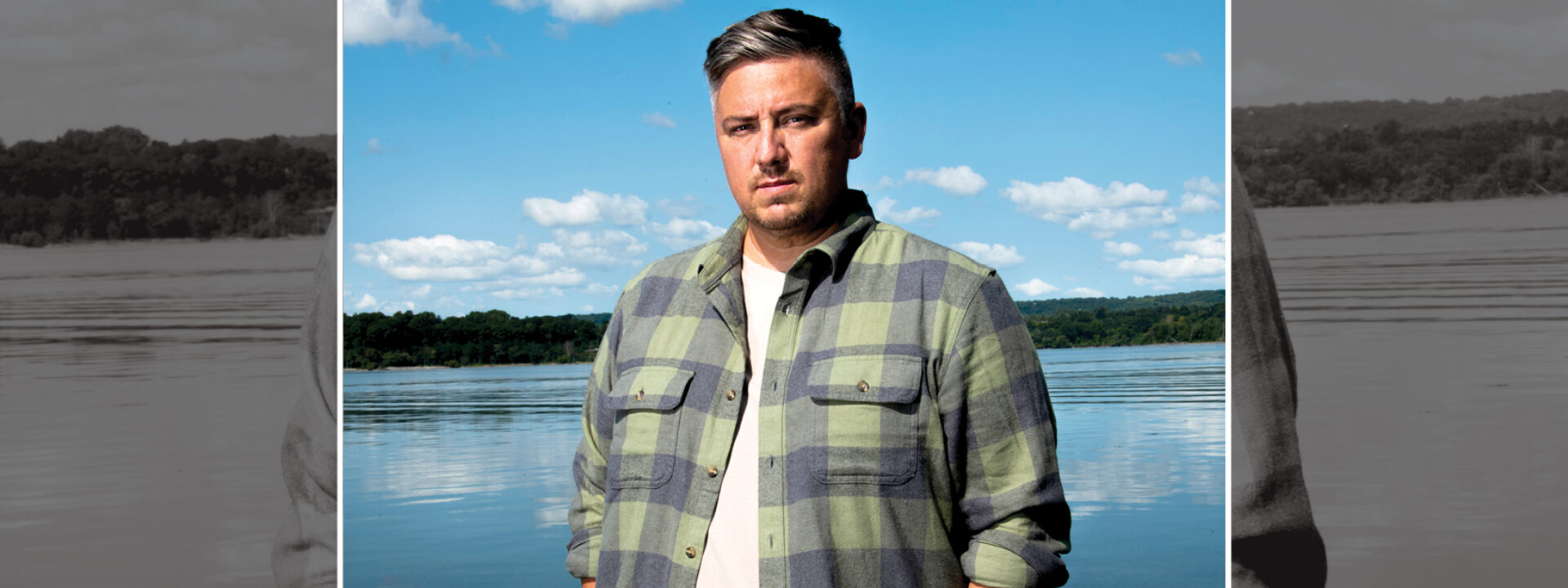
This regular HAMILTON CITY Magazine feature will highlight people, from all walks of life, who have embraced Hamilton as their new home.
Ryan McMahon, who is from the Couchiching First Nation in Treaty 3 Territory, was born in Fort Frances, Ont. and grew up in Thunder Bay. The oldest of four children, McMahon was the first person in his family to graduate from high school. He then graduated with a degree in theatre from the University of Minnesota on a full hockey scholarship. He completed a two-year program at the Second City Conservatory in Toronto with a full scholarship. McMahon was host of the 2018 Canadaland podcast Thunder Bay that was adapted into a four-part television documentary series of the same name that he developed, produced, wrote and co-directed.
What brought you to Hamilton?
I had a plan to move to Toronto. This was at the beginning of production on the Thunder Bay TV series. I was looking at an apartment in Toronto because I was going to be working in Toronto for about 18 months. Then I fell in love with a girl from Hamilton, Madeline Wilson Shaw, and the rest is history. I just never left. She's Mohawk and she captured me — she captured the Ojibwa. We moved in together in the spring of '21.
One of the first times I flew in to hang out with Mad, we went for a drive to look for snacks. Then Mad gave me the tour and we started driving around. We drove up the Mountain. We drove out to Dundas and just did a loop. And I thought, this is a really beautiful place, it's really naturally beautiful. All of the things that I like in a city are here – there's a working-class culture here I think is really important. It's where I come from, working-class people. I just loved it.
Your documentary Thunder Bay is out on Crave TV. It's about police corruption and racism in Thunder Bay. Beyond the obvious here, what was your motivation personally to do the documentary after the podcast?
After the second season of the podcast, being a journalist, I thought an important question to ask was, ‘What is a reasonable timeframe for change?’ There's so much pressure on the city, on its leadership. All of the reports and the city's problems were so high profile that I thought we all have to go away and let this city do its work. So, I left for a year. And then I started to hear that things actually weren't great there and that people were feeling like they were being gaslit by the city’s leadership.
There are particular challenges in Thunder Bay with the local media in terms of resources and ability to follow this story consistently. The Thunder Bay police operate in a way where they don't give you access to information; they just provide press releases. You never get a scrum with leaders. You never get a conversation with local leadership there. They have for years operated under this press release system where: ‘We are going to tell you what's happening, and that is our official statement.’
That motivated me. I want to go there and ask more questions. And I did. I asked one question. I said to my sources and to the people whom I worked with behind the scenes and in front of the microphone for the podcast, ‘What does it feel like to have hit rock bottom in such a public way as a city?’ And everybody answered that question similarly, which was to say, ‘If you think Thunder Bay hit rock bottom, you don't know Thunder Bay.’ I thought, all right, there's my call to action. What the hell does that mean? And it turns out they were exactly right.
Is this what led you to making the documentary?
My partnership was with Canadaland and Jesse Brown. We did the Thunder Bay podcast but we never had a plan. So once the podcast was successful, we just said let's not talk to any film or TV people, let's just wait and see what happens.
I never thought the documentary series would ever happen. Who's going to let you walk into their house and point cameras at them when they're talking about murder and death, and the worst day of their lives and police corruption? So, I thought this will never happen. But a dramatic series, I bet you we could write a pretty kick-ass TV series that people would binge and watch. Well, it was the exact opposite. The dramatic series – no one was interested, no one could wrap their head around how to do it. But the documentary series, everybody jumped at it and thought that's where we have to go.
By all accounts, the series has surpassed Bell's wildest expectations. And we got a big bump. when CTV’s W5 played episode one of the series on their program, which they don't do. They don't take independent producers' content and air it on their show. It's their flagship show. It's the highest-rated show on CTV. Some of the best investigative journalism. They really liked the work, so they wanted to support it that way.
How has your lived experience influenced your work and your outlook, your perspective on life, work?
Well, I come from a long line of residential school survivors. And my family, on both sides of my family, my dad's mom was Indigenous, my dad was white. Both of my mom's parents were Indigenous. So, we have this experience in my family that I don't think many of us really understood until about 20, 25 years ago when it really started to become a part of my family's lives in terms of healing and ceremony, and simple things like going to powwows. My siblings and I, as young people, started to want to engage more in our culture. My mom worked at the local Friendship Centre. And so that brought a lot of culture into our lives.
I was born and raised inside a Friendship Centre basically through community programs, youth programs, summer programs. Friendship Centres are an urban Indigenous space. There's 134 of them across Canada. The Hamilton Regional Indian Centre on Ottawa Street is a Friendship Centre, part of the national Friendship Centre movement.
That’s the way we're raised, is if somebody needs help, you help them. When I learned about my Ojibwe name, when my name was given to me, and when my clan was given to me, pieces of my culture were coming back to me through ceremonies and different things. I started to learn about cultural responsibility and what being Bear Clan meant.
But I was an actor. I went to school for theatre. Around this time in 1999, I was just a lowly actor beginning a career in Toronto with a hope and a dream. Nothing made sense. I had this cultural responsibility that I was learning about, but I wanted to be an actor. As an artist, you're very selfish. And I was a young man, so I was very selfish. These things didn't necessarily fit together.
Over the last 10 years of my career, I began to understand that having a cultural responsibility through our clan system as an Ojibwe person, being an artist with a platform, and being an artist that has found success through my chosen craft, I can bring my cultural responsibility together with my art and fight for people. I can use my talent to express some of these issues. I think storytelling is the vehicle for change this country needs. And I think Indigenous stories in particular will help correct where this country has gone wrong if we are brave enough to consider. And to me, where this country goes wrong time and time again is we stop listening to each other.
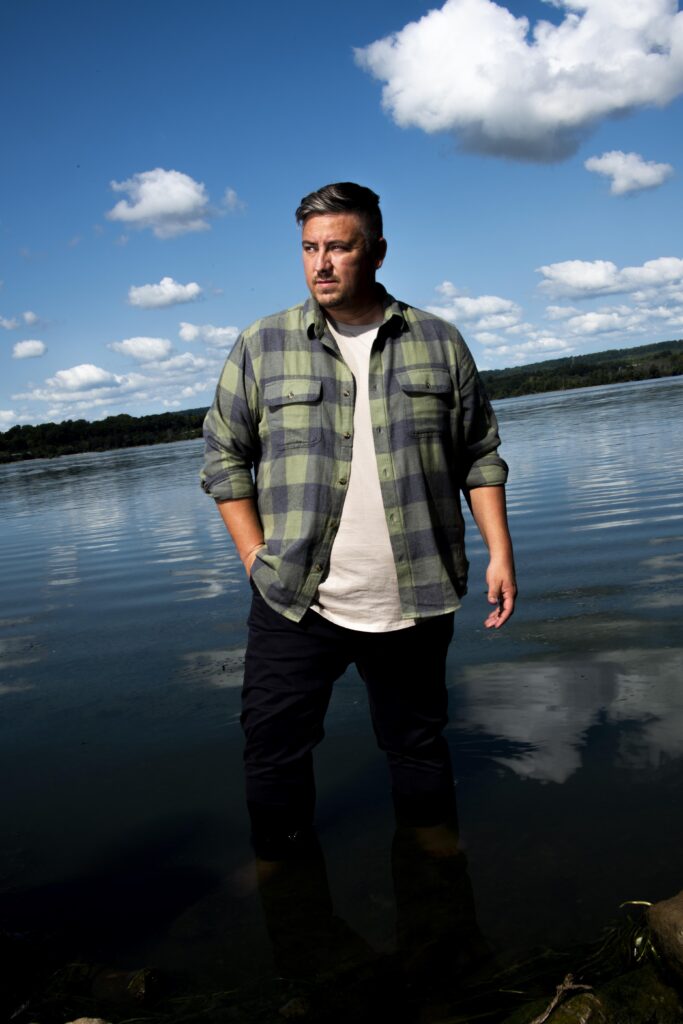
Comedy's an important part of your career, so is there anything planned for the near future?
Comedy is what opened up the doorway for everything for me. I moved to Toronto in 1999. And walking home from a play one night, I stumbled past the Second City in Toronto. I'd only ever heard of Second City and never even considered that it was in Toronto. But I stumbled across it. There was a poster on the door and auditions happening for the conservatory. I thought, that's what I'm doing. That's what my life is going to be. I'd finished theatre school and really had nothing going on. I had an agent and a manager, a casting agent that was helping me out. But I had no direction. And as a native actor, I don't stereotypically look native. So, I was going into auditions with beautiful brown men with abs and braids and cheekbones. And then there's me, me in a loin cloth, looking like the Pillsbury Doughboy got caught in some duct tape.
So, I'm in these auditions trying to talk native. And I was just completely lost. Then I found comedy, and I thought, I'm going to talk about that audition through comedy. It was like a switch. It was like I figured out all of the pains that I had in life, I could talk about through this vehicle of comedy. I think in particular for Indigenous comedians and Indigenous comics, to be able to turn your experiences upside down and present them back to people to go and see. See the hypocrisy here, see why this hurts, how things can be different. I think it’s one of those beautiful gifts. Comedy, when done correctly in my experience, disarms people. You're sitting in a dark theatre, everyone's together for this one experience, and you get the chance to change the minds of 500 or 600 people with a little bit of levity. For me, I'm overtly political in my comedy. I'm brutally honest and irreverent. And I try to walk the line of making people feel uncomfortable and then bring them back, give them a hug, give them a soft place to land, then bring them right back into that space. And I think when you leave my live show, you're as exhausted as I am, because you've had to go on that journey.
Last time I was at Just For laughs, I was in the homegrown contest with seven or eight other Canadian comics. All of us had achieved a certain level of competency. And it's a big show, it's a showcase show, and a winner is declared. But I was in this contest with comics talking about smoking weed with their cats. One comic talked about her pussy for nine minutes. And I'm up there talking about fucking hardcore Indigenous politics. And I bombed. I've never done so poorly on a stage in my life. And it's just because, in certain spaces, there's a certain expectation on comedy.
And so, I've bucked against that my entire career to try to say, 'I'll give you your money back if you don't like this, but if you'll sit through the next 80, 90 minutes, I think you'll have a good time.' So that for me is what comedy has done. And then the success in the comedy space led to people trusting me to do more in-depth podcasting and writing and investigative journalism. And then it led to the investigative documentaries.
Is there anything on the horizon for comedy in the near future for you?
I’m developing a show here in Hamilton right now called Best F'KN Story. It's a live storytelling show. We're going to invite folks to just come and tell their best story, whatever their best story is. Triumphs, tribulations, wins and losses. And that's one thing that I'm really excited about.
I moved here during the pandemic and was making the TV show up until February of this year. That's where my attention was. Now it's spring and I'm looking around figuring I'd better do something. It's the first time in many years where I'm not being pulled in every direction. It's a nice place to be, so developing this show locally here in Hamilton is a first – thinking about it as a podcast, as a television opportunity. And thinking about where to put it in the city and who would come out to watch it, and who would come out and tell stories. I'm really excited because I'm excited by Hamilton. To me, comedy is the great equalizer. Comedy is the thing that I think can pull people together. It sets the table in a way that we're all going to share a meal here, and we're all going to laugh and we'll go away after and maybe disagree about some things. Comedy is sacred and the last bastion of free speech. And it's the only place where I find you can be yourself because you're expected to be yourself.
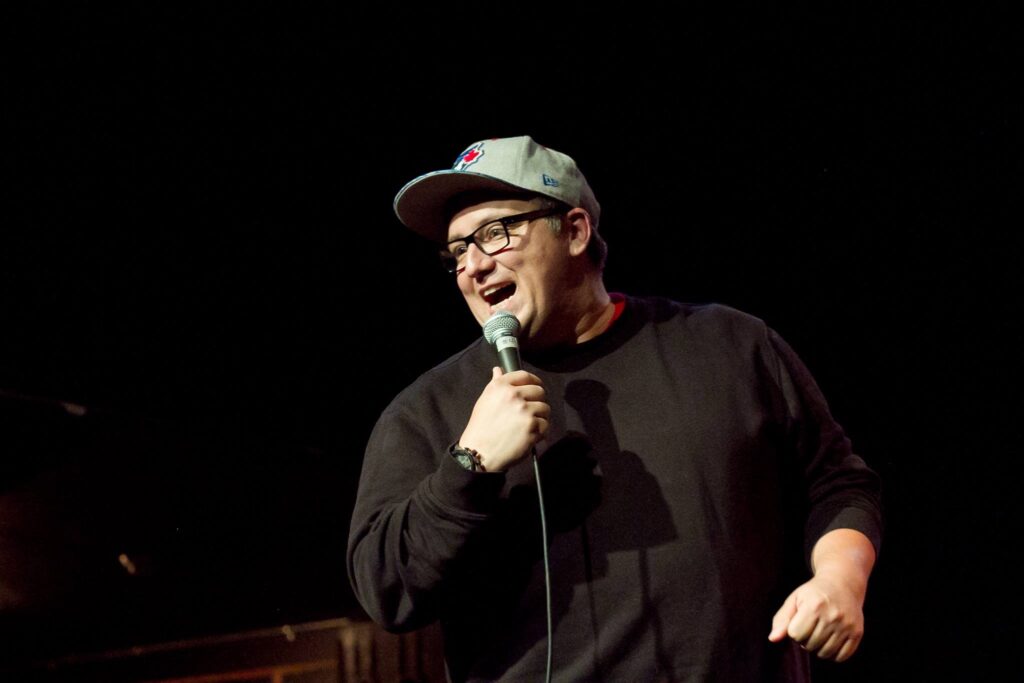
What is the next project you are working on?
I started a new project, JOKE TALK YELL WRITE, the four things I do. So, whether joking, talking, yelling, or writing, I try to do so from a place that makes sense to me. People can find that at joketalkyellwrite.substack.com. I'm currently in negotiations on a couple of different TV series. There’s a couple of documentary projects that I'm considering. But right now, my writing partner John Thompson and I we're writing a book, which is due in the summer.
But I'm looking to return to comedy. The last six years in particular have been incredibly difficult professionally. I've been in therapy for a year, and it's only now through therapy that I realize how much of this work I carry with me. And how hard it is to let it go and how painful it is. The next thing I do I hope is funny and doesn't involve the death of Indigenous people. And if I can manage to do that, I'll be happy.
Who are some of the filmmakers or documentary writers who've inspired you?
Alanis Obanswin. She's a filmmaker who's been making films for 50 years. She's sort of the gold bar standard of Indigenous documentary and Canadian documentary in this country. She's someone that I really look up to in terms of the longevity of a career. But I'm really inspired by American travel documentarian Anthony Bourdain and also Louis Theroux, a British-American documentarian and journalist, because their work really allows them to be themselves. And I'm still trying to figure out documentary in a way that allows me to be myself and allows me to bring myself to the work without getting in the way of the work.
What’s your take on Hamilton now that you've got some roots here?
I think Hamilton is a humble place that'll punch you in the mouth if you're not careful. What I mean by that is it seems as though everybody is working equally hard to make a difference in their own way in their own communities. Because I'm not from here, I come across a lot of people doing a lot of things to make a difference here. I think that my understanding of this city is there's a lot of imagination happening right now. And that's really inspiring for me as someone who uses my own imagination to do the work I do. I'm really inspired by this place in a lot of different ways. But I think the creative re-imagination of Hamilton that I'm experiencing right now as a new resident is something I’ve really grabbed on to and really feel. It's inspiring.
Why did you choose the Kirkendall neighbourhood?
This is where Madeline was born and raised. She grew up here and tells me this neighborhood has changed a lot since her childhood. But in moving here, we asked ourselves: ‘What does our best day look like? And where can we live to have that best day?’ And that best day includes being able to not drive anywhere if we don't have to. We can walk down to Fortinos, we can go down to Locke Street, we can head over to James or John Street, we can head up over here up the Mountain. So the kind of hub that we feel around here is really important to us. So our best day includes going out for a walk with the baby, grabbing the few groceries we might need to make dinner, having a coffee, and being able to get outside. We are super lucky to be in this neighbourhood. We look outside the bedroom window and we can see the escarpment. It's pretty magical.
I have two teenage daughters, they're 20 and 17 – they loved Sarah Harmer’s 2005 album she wrote about the Niagara Escarpment, I’m a Mountain and the song “Escarpment Blues.” That was their favourite album long before I met Madeline or moved here. So now this is their house and they live here too, and I point out the escarpment to them and put Sarah Harmer’s album on, and they're pretty blown away by it. To hear about it and then to see and experience it.
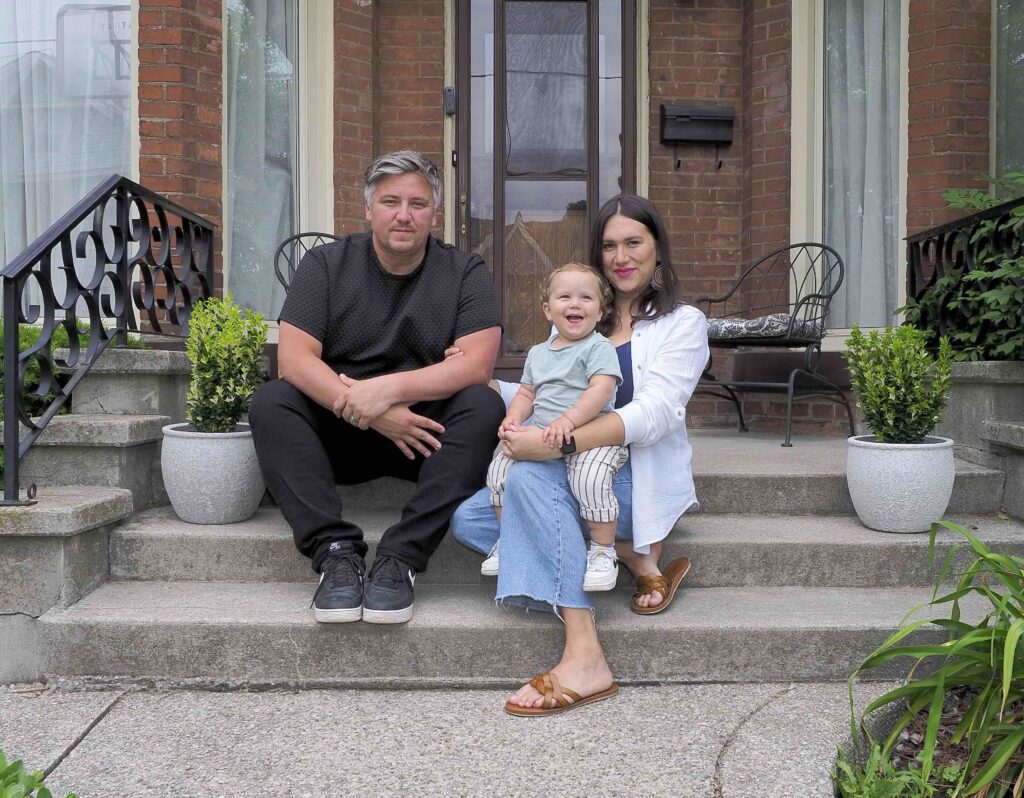
What Hamilton arts or cultural events do you most look forward to attending?
I loved Supercrawl last year. I think some of the programming is really exciting. Anything that's happening down at the Hamilton Farmers' Market. We've stumbled into some fantastic things at the market that we really love. And the gritLIT annual literary festival. I know there are a number of great authors here. My former literary agent is here. There's something here with words that really excites me. And I see authors around all the time and filmmakers and other creative people.
Compared to other places you’ve lived, what's your perspective on Hamilton in terms of inclusiveness with our fellow Indigenous citizens?
Winnipeg has the largest urban Indigenous population in Canada and is kind of like living on the reserve. There's cousins everywhere, literally everywhere. I think people compare Thunder Bay and Hamilton all the time. I'm not sure why but probably because of industry and the working-class roots of both cities. But I'm not all that familiar with the urban Indigenous population here yet. We’ve been down to the [Hamilton Regional Indian Centre] Friendship Centre and have gone to several events. I am particularly inspired by the work that Indigenous students are doing at Mohawk College and McMaster University. I know the urban Indigenous population here is fighting hard for the folks that need support.
What do you like to do when you’re not working, on your personal time?
When I'm not working, family rules the day for me. We spend a lot of time outside. We prefer to be outside. We find ourselves, locally around our neighbourhood, in the park all the time with the kids and just enjoying life. I need to be outside. I was born and raised in the bush proper, so being outside is where I centre myself – hiking and day trips. To me, there's nothing better than stopping at a grocery store, throwing $40 worth of cheese and crackers and pickles and lunch meat and a loaf of fresh bread in the back of the truck. And go and find somewhere to sit for the day – a little picnic thing. Listen to music. Let the kids jump in the lake. That's my best day if we can make that happen.
What's Hamilton's best-kept secret that you've discovered?
I think Hamilton's best-kept secret is just how family friendly the city is. I think often people would say the art community or the film community or something like that. But I think that this is a city that has a lot of resources and opportunities for kids. There's a lot of opportunity here for kids, whether it's T-ball or soccer in the park, whether it's the splash pad down at HAAA. Just in this neighbourhood there are so many things for the kids to do. The little library here on Locke has children's programming.
As an outsider, I come here humbly. I know I'm not from here, but I will never talk about the city I used to be from. I will not say some of the things people say like Hamilton is like Toronto only smaller. It's not like Toronto. Print this. Hamilton is not like Toronto. It never will be, it never was and it should not be.
A real hidden gem in this city is the food culture here. I couldn't believe the amount of good food I've found in the time that I've been here. I'm a food person. I love food, I love cooking. But I also love going out for food once in a while. Yeah. I think that that's a really hush, hush secret. You can find some delicious food in strip malls in places that you'd never expect.
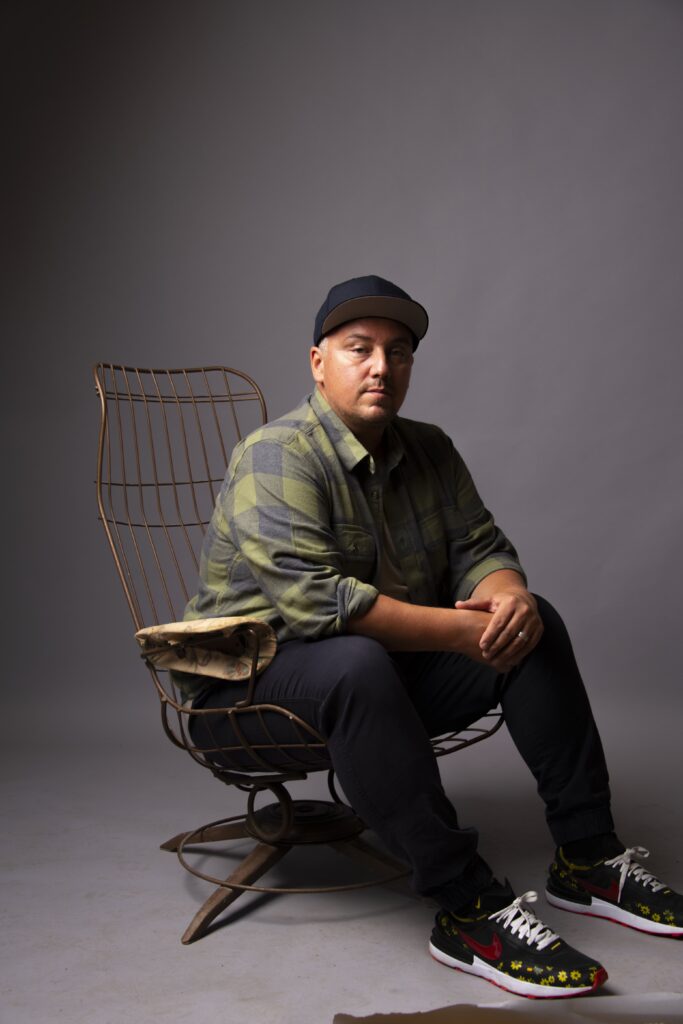
What does Hamilton need more of?
I would like to see more live performance that is not music. I would like to see more open mics, more stages open for folks to get up at and try out. I don't know if I use this word properly, but I want more culture created in ‘between the cracks.’ The Art Gallery of Hamilton is fantastic. And there are a lot of small museums around. You can go to those. You can go see music at any number of the live venues here. But I think post-pandemic, a lot of those smaller venues are struggling to stay open. And a lot of them are closed now.
In my industry, I would like for us to make space for those that traditionally haven't had space. And by doing so, create those conversations and that cultural space I think we all felt we missed during the pandemic. I know I missed live music. I kept saying, ‘I promise if we live through this, if we survive, I promise I'm going to go out and see more music. I promise I'm going to go see more shows. That comic I've never really heard of is coming through town, I'll go throw him 20 bucks.’ I hope we don't take that for granted on a go-forward basis. And we continue to be brave enough to create new culture and let the conversation evolve.
What does Hamilton need less of?
I think Hamilton could use less politics. Everywhere I go, someone's got to tell you about something. And it's like ... I know the identity here is one of engagement and unions and the working-class folks. But you can't go for a dinner without having a political debate. And there's more to life than what Doug Ford is doing, there's more to life. There's a bit of a fatigue I think a lot of people are feeling. I wonder if that drives low voter turnout or voter fatigue. It's politics all over. All the time, everywhere, every day.
What's the one thing you brag about Hamilton to outsiders?
I just brag about how beautiful it is here. I think that most cities are beautiful, warts and all. But when you get on top of the Dundas Peak, or when you're looking down at the city from any number of lookouts or parks on the escarpment, what a beautiful place.
And I said, the first time I came here, Mad drove me around and gave me a tour. I mean, she said, ‘Oh, this place is beautiful in the summer, you have to see it. We're going up the Jolley Cut, coming back around, down a different Mountain access. I just couldn't believe it. It just felt like I was somewhere I'd never been before. And that is really rare in Canada. I've toured across this country six times on my own and I've seen just about everything there is to see in this country, including the north. But being here that first time, it felt like I was somewhere I'd never been before.
How do you describe yourself as a professional, your work when you've had such a diverse career?
I would say I'm an Anishinaabe. I'm an Anishinaabe creative. Because everything I try to do professionally comes from an Ojibwe sensibility. So, with my work, I really try to lead with my understanding of the way I'm supposed to be in the world. Kind and gentle, but firm. So, I’m an Anishinaabe creative that jokes, talks, yells and writes for a living.
NEED TO KNOW
As founder and CEO of the Makoons Media Group, Ryan McMahon is currently building the world’s only independent Indigenous media platform, Indian & Cowboy, which is committed to digital publishing and the internet. McMahon won an RTDNA award for his CBC Radio One series, 12 Step Program for Decolonization in Canada – A Seriously Funny Investigation into Canada’s Addiction to Colonialism. His podcasts, Red Man Laughing, Stories from the Land, and Thunder Bay, have received both popular and critical acclaim and have been downloaded millions of times worldwide. McMahon has recorded five national comedy specials since 2010, and has appeared multiple times at the world-renowned Just for Laughs Comedy Festival.






